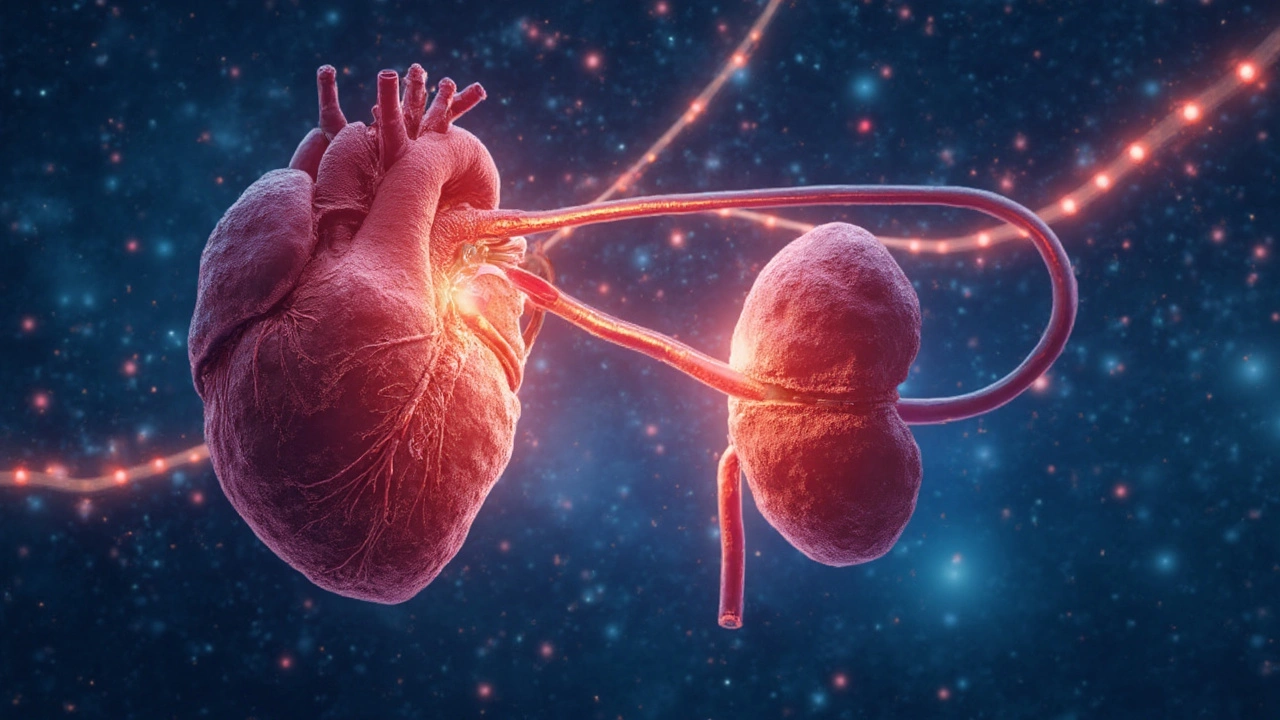Kidney Function: How Your Kidneys Keep You Healthy
Kidneys might not get much attention until something feels off, but they're crucial for your health. These bean-shaped organs filter waste and extra fluids from your blood, turning them into urine. Think of them as your body's natural filter system, making sure toxins don't build up and cause harm.
Each day, your kidneys process about 50 gallons of blood, but only produce about 1 to 2 quarts of urine. That's impressive! They also help balance your electrolytes, control blood pressure, and produce hormones that keep your bones and blood cells in good shape.
Signs Your Kidneys Might Need Help
So, how do you know if your kidneys aren’t working well? Sometimes, there are no obvious symptoms early on, but watch for swelling in your ankles or around your eyes, feeling tired all the time, trouble concentrating, or changes in how much you pee. Having blood or foam in your urine, or unexplained back pain, can also be clues.
If you have high blood pressure or diabetes, your kidneys are at higher risk, so regular check-ups matter. Blood and urine tests can spot issues before you even notice symptoms. Catching problems early can help prevent serious damage.
Simple Habits That Support Kidney Health
Keeping your kidneys happy isn’t complicated. Hydrate well—drink plenty of water throughout the day. Watch your salt intake because too much can raise blood pressure, putting strain on your kidneys. Avoid excessive use of over-the-counter painkillers like ibuprofen, which can harm kidney function if taken too often.
Eat a balanced diet with plenty of fruits and veggies and stay active. If you smoke, quitting can reduce kidney damage risk. Lastly, manage chronic conditions like diabetes and hypertension carefully – they’re the top causes of kidney problems worldwide.
Understanding kidney function helps you take control of your health. Look out for warning signs, stay hydrated, and maintain healthy habits. Your kidneys work hard every day—give them the care they deserve!
Discover how left ventricular dysfunction affects kidney function, revealing critical insights into heart and renal systems' interconnected nature. Learn about the substantial role that heart health plays in urinary function and the risks involved. This article offers practical tips for managing these conditions effectively, aiming to minimize complications. Understanding the heart-kidney relationship can aid in better management of one's overall health.

